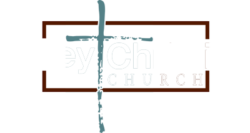Sermon 23
Without the Shedding of Blood: Jesus Redemption of Mankind
Pastor Martin continues through Hebrews 9 (Part 2)
Heb 9:6 Now when these things had been thus prepared, the priests always went into the first part of the tabernacle, performing the services.
Heb 9:7 But into the second part the high priest went alone once a year, not without blood, which he offered for himself and for the people’s sins committed in ignorance;
Heb 9:8 the Holy Spirit indicating this, that the way into the Holiest of All was not yet made manifest while the first tabernacle was still standing.
Heb 9:9 It was symbolic (a parable, or similitude) for the present time in which both gifts and sacrifices are offered which cannot make him who performed the service perfect in regard to the conscience—
Heb 9:10 concerned only with foods and drinks, various washings, and fleshly ordinances imposed until the time of reformation. Fleshly ordinances in vs 10 are things that purify the outside, but cannot regenerate the inside. Thus, no matter how many rituals or rites are performed, the conscience cannot be clean.
Heb 9:11 But Christ came as High Priest of the good things to come, with the greater and more perfect tabernacle not made with hands, that is, not of this creation.
Heb 9:12 Not with the blood of goats and calves, but with His own blood He entered the Most Holy Place once for all, having obtained eternal redemption.
Redemption= lutrōsis loo’-tro-sis From G3084; a ransoming (figuratively): – + redeemed, redemption. Only used 3 times: Luke 1:68, Luke 2:38, Hebrews 9:12.
Heb 9:13 For if the blood of bulls and goats (define plural use) and the ashes of a heifer (Red heifer), sprinkling the unclean, sanctifies for the purifying of the flesh,
SEE Numbers 19:1-6 Ritual of purification, Water of purification. six red heifers…
Heb 9:14 How much more shall the blood of Christ, who through the eternal Spirit offered Himself without spot to God, cleanse your conscience from dead works to serve the living God?
Heb 9:15 And for this reason He is the Mediator of the new covenant, by means of death, for the redemption (the act..Retroactive – See Romans 3:24-26) of the transgressions under the first covenant, that those who are called may receive the promise of the eternal inheritance. Both retroactive AND eternal.
First Covenant:
- Noaic- Genesis 9,
- Abrahamic- Gen 15,
- Mosaic, or The Law- Exodus 19-20;
This reference is the first covenant that had the Levitical priesthood attached.
All of these covenants were ratified by blood…Exodus 24:1-8
Heb 9:16 For where there is a testament, there must also of necessity be the death of the testator.
Heb 9:17 For a testament is in force after men are dead, since it has no power at all while the testator lives.
A will is only a promise until the testifier dies…
Heb 9:18 Therefore not even the first covenant was dedicated without blood.
Heb 9:19 For when Moses had spoken every precept to all the people according to the law, he took the blood of calves and goats, with water, scarlet wool, and hyssop,(Passover, Exodus 12:22, Leper cleansing Lev 14:4,
red heifer Numbers 9:6) and sprinkled both the book itself and all the people,
Sprinkling people is limited to two occasions:
The Law Covenant and Aaron and sons dedication in Exodus 29:21.
See 1 Peter 1:2
1Pe 1:2 elect according to the foreknowledge of God the Father, in sanctification of the Spirit, for obedience and sprinkling of the blood of Jesus Christ: Grace to you and peace be multiplied.
Discuss “the book itself”
Psalm 138:2 I will worship toward Your holy temple, And praise Your name For Your lovingkindness and Your truth; For You have magnified Your word above all Your name.
Heb 9:20 saying, “THIS IS THE BLOOD OF THE COVENANT WHICH GOD HAS COMMANDED YOU.” (Sound familiar?)
Heb 9:21 Then likewise he sprinkled with blood both the tabernacle and all the vessels of the ministry.
Exodus 24:1-8
What was sprinkled with blood under the Old Covenant?
- The Priesthood
- The Book of the Law
- The people
- The tabernacle and everything devoted to it
If these things were set apart (ratified) by the sprinkling of temporary offerings, symbolic of what was to come (and we know that they were because of Heb 9:9), then how much more powerful is the substance that the symbols represented?
Heb 9:13 For if the blood of bulls and goats and the ashes of a heifer, sprinkling the unclean, sanctifies for the purifying of the flesh,
Heb 9:14 how much more shall the blood of Christ, who through the eternal Spirit offered Himself without spot to God, cleanse your conscience from dead works to serve the living God?
Heb 9:22 And according to the law almost all things are purified with blood, and without shedding of blood there is no remission.
Heb 9:23 Therefore it was necessary that the copies of the things in the heavens should be purified with these, but the heavenly things themselves with better sacrifices than these.
Literal or figurative???
Heb 9:24 For Christ has not entered the holy places made with hands, which are copies of the true, but into heaven itself, now to appear in the presence of God for us;
Heb 9:25 not that He should offer Himself often, as the high priest enters the Most Holy Place every year with blood of another—
Heb 9:26 He then would have had to suffer often since the foundation of the world; but now, once at the end of the ages, He has appeared to put away sin by the sacrifice of Himself.
Heb 9:27 And as it is appointed for men to die once, but after this the judgment,
Heb 9:28 so Christ was offered once to bear the sins of many. To those who eagerly wait for Him He will appear a second time, apart from sin, for salvation.

